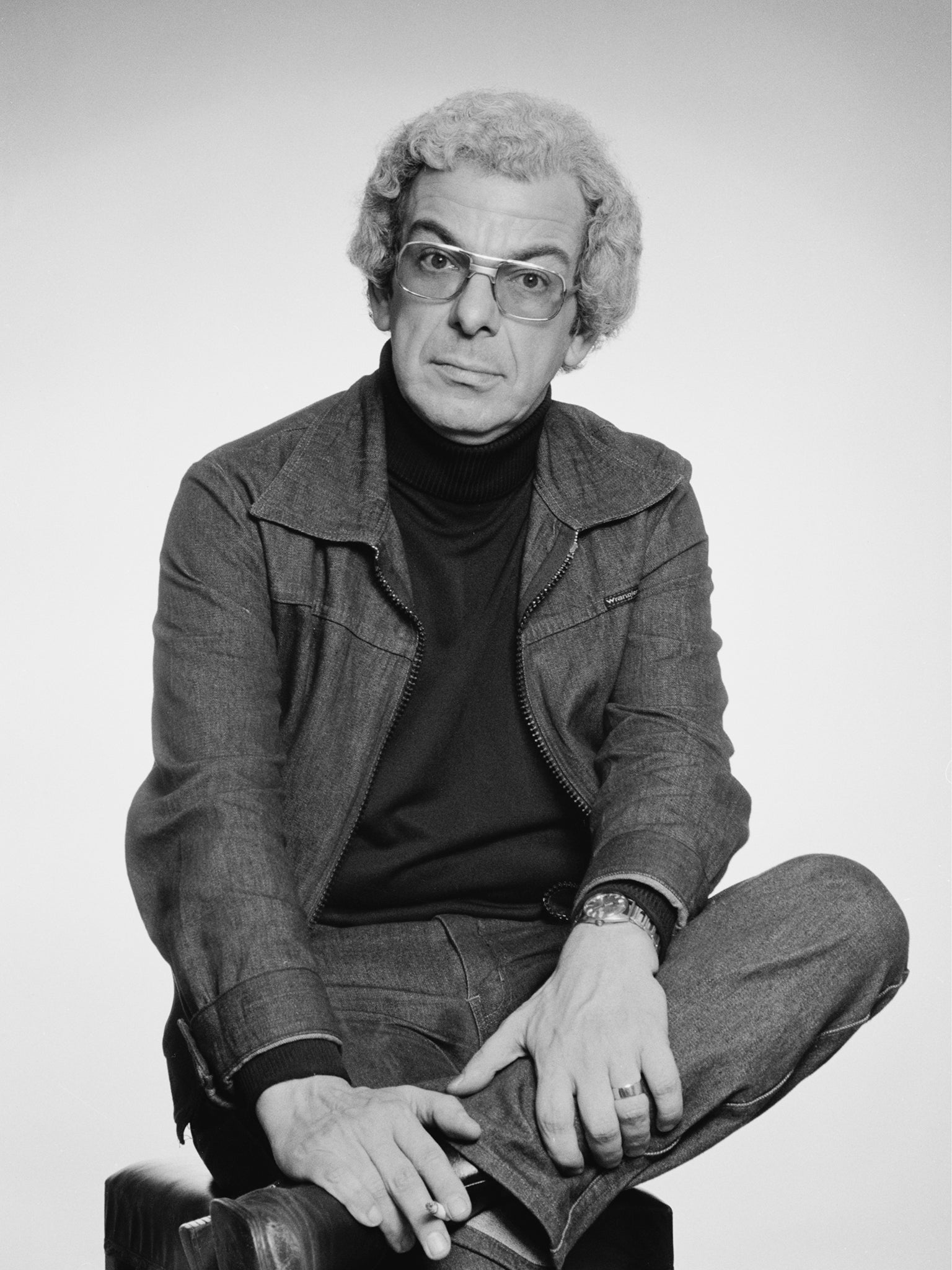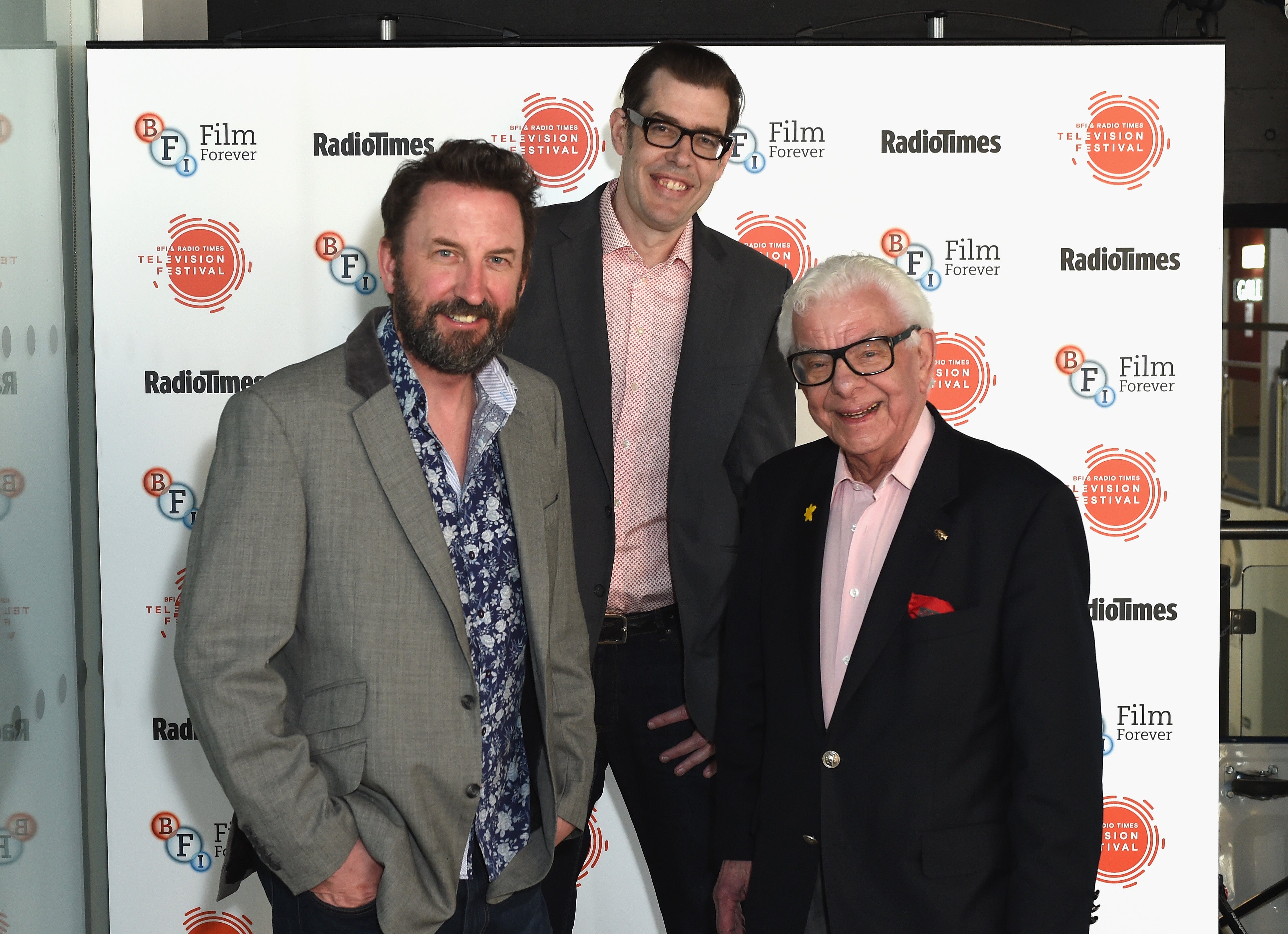Barry Cryer: Prolific light entertainment writer and elder statesman of comedy
With a career spanning half a century, Barry Cryer worked with many of the greats of comedy, TV and radio

Barry Cryer, who has died aged 86, lived and breathed comedy for more than half a century, and became its elder statesperson, working up until his death.
He scripted sketches for stars ranging from Tommy Cooper, Les Dawson and Frankie Howerd to the Two Ronnies, Morecambe and Wise, Kenny Everett and Rory Bremner, and delivered lines himself as part of the institution that is the BBC radio show I’m Sorry I Haven’t a Clue. The programme, featuring two teams of two comedians who are set an array of challenges to test their mental dexterity, began in 1972 as an “antidote” to panel games.
Cryer originally alternated as chair with Humphrey Lyttelton, who then took the role permanently from the second series, when Cryer replaced John Cleese as a permanent panellist and became noted for his quickfire one-liners. Lyttelton, who died in 2008, described him as the “bricks-and-mortar” of the show, which had a running joke that he was a dirty old man with a drinking problem who is desperate to get to the pub but never buys a round.
Tasked with offering an alternative definition to a word, Cryer once came up with: “Hashtag: party game where you chase each other for drugs.” When a joke fell flat, he would say: “Wish I was dead.” Cryer outlasted the other original panellists, following the deaths of Willie Rushton in 1996 and Tim Brooke-Taylor in 2020, and Graeme Garden appearing only intermittently since 2015.
Although Leeds was his birthplace, he declared himself never to be a “professional Yorkshireman”. Nevertheless, he added: “I might be a fan of the American style of one-liners, but I’m also a sucker for that dour, lugubrious humour from the north of England, especially the sort that comes with a hidden twinkle. It’s so characteristic of Yorkshire.”

Barry Charles Cryer was born in 1935 to Jean (née Jenny Yarker) and Carl Cryer, a Jewish accountant. On leaving Leeds Grammar School, he began a degree in English literature at Leeds University (1955-56) but failed his first-year exams. While there, he produced the students’ rag revue, in which he performed his comedy act, at the Empire Theatre. It was seen by an agent, who booked him for a week at Leeds’s famous City Varieties theatre in 1956 before he took his routine to other provincial stages. He also wrote for the Leeds-based Proscenium Players, Britain’s first Jewish amateur drama group.
Cryer returned to his home city to work as a stagehand at the Empire before moving to London in 1957 and performing at the famous Windmill Theatre, in between the nude shows, at the foot of a bill topped by Bruce Forsyth. Cryer left the Windmill after a year to appear as Beast in the West End musical Expresso Bongo, impressing composer Monty Norman by auditioning with a song he had written himself bearing the same title as the show.
“I didn't really know what to do for the audition,” Cryer told The Independent in 2012, “so I wrote this little ditty in my bedsit the night before, hired some bongos from a friend, went up on stage and did it. ‘Kid from the back street with the crazy beat’ was its main lyric, I seem to recall.”

In 1958, he also recorded a cover version of a novelty song, “The Purple People Eater”. Sheb Wooley’s original topped the American charts and made the British Top 20 but, for contractual reasons, could not be released in Scandinavia, resulting in Cryer reputedly landing a No 1 in Finland. (Although it was reported almost universally after his death that this was the case, The Independent has been unable to verify this. Other sources report Cryer as having said they gave away a free car with every record.) Regardless, it was one of three singles he recorded on the Fontana label after a friend, singer Frankie Vaughan, secured him an audition.
Suffering from the skin condition eczema, which hospitalised him 12 times, Cryer then decided to stop performing in front of audiences – caked in make-up – and concentrate on writing. He wrote sketches for revues at London’s Fortune Theatre that were seen by Danny La Rue and was invited to write shows for the star at Winston’s nightclub, then for several years at the female impersonator’s own club, whose company included Ronnie Corbett.
In 1964, shortly after La Rue’s nightclub opened, David Frost – who had made his name as presenter of the satirical TV series That Was the Week That Was – saw Cryer and hired him as a writer for shows such as A Degree of Frost (1964) and the series The Frost Report (1966-67) and Frost on Sunday (1968-70).

Frost also teamed him with Marty Feldman, Brooke-Taylor, Aimi MacDonald and future Monty Python stars Cleese and Graham Chapman for another satirical programme, At Last the 1948 Show (1967). During this period, Cryer began a 17-year run (1964-81) scripting sketches for The Dick Emery Show.
He was in front of the camera again, with his trademark thick-rimmed glasses, hosting the comedy panel game Jokers Wild (1969-74) and alongside Brooke-Taylor and John Junkin in Hello Cheeky (1976), a TV version of the radio show. Where many writers worked alone or had long-running partnerships, Cryer did both – and was adept enough to switch between writing partners.
With Chapman, he scripted episodes of the TV sitcoms Doctor in the House (in 1969) and Doctor at Large ( 1971), and several sitcoms starring Ronnie Corbett, starting with No, That’s Me Over Here! (1967-70) and Now Look Here (1971-73).
Then, with Junkin, Cryer wrote the 1972 and 1978 Morecambe and Wise Christmas shows, as well as contributed to the 1976 festive special. Their formula for working was Junkin putting himself in the role of Morecambe while Cryer provided Wise’s lines.

He had a particularly fruitful time writing for Kenny Everett, first in partnership with Ray Cameron on The Kenny Everett Video Cassette (1978-81), then with the star himself for The Kenny Everett Television Show (1981-88).
Cryer’s prolific contribution to light entertainment embraced scripts for the biggest names of the time. Asked by Mark Lawson in a 2008 interview whether he would have preferred to be the star delivering the lines, he said he was happy to be a “backroom boy” for those such as Tommy Cooper, Max Bygraves, Jim Dale, Stanley Baxter, Des O’Connor, Les Dawson (with David Nobbs as his writing partner), Frankie Howerd, Jim Davidson, Bruce Forsyth, Little and Large, Jasper Carrott and Russ Abbot.
He also wrote for Ronnie Barker and Ronnie Corbett (who had featured in the Frost programmes), individually and throughout The Two Ronnies (1971-87). Moving into a new age of television comedy, he contributed gags to impressionist Rory Bremner’s series Now – Something Else (in 1987), Rory Bremner (1988-92) and Rory Bremner – Who Else? (in 1993).
On radio, he teamed up with his I’m Sorry I Haven’t a Clue co-star Garden to spin off two Scottish characters from the programme, Hamish and Dougal, into You’ll Have Had Your Tea (2002-07), in which Scottish stereotypes and sexual innuendo featured strongly.
The show was described by The Independent as “The Beano with added smut” but, when The Scotsman referred to the “quasi-racist routines”, Cryer insisted it was sending up stereotypes and “an affectionate laugh at all things Scottish”.
He wrote two volumes of autobiography, You Won’t Believe This But... (1996) and Butterfly Brain (2009), and was made an OBE in 2001.
In 1962, Cryer married singer Theresa “Terry” Donovan, whom he met at Winston’s. She, their three sons, Tony, Dave and actor-writer Bob, and daughter, Jackie, survive him.
Barry Cryer, comedy writer and performer, born 23 March 1935, died 25 January 2022


Join our commenting forum
Join thought-provoking conversations, follow other Independent readers and see their replies
Comments